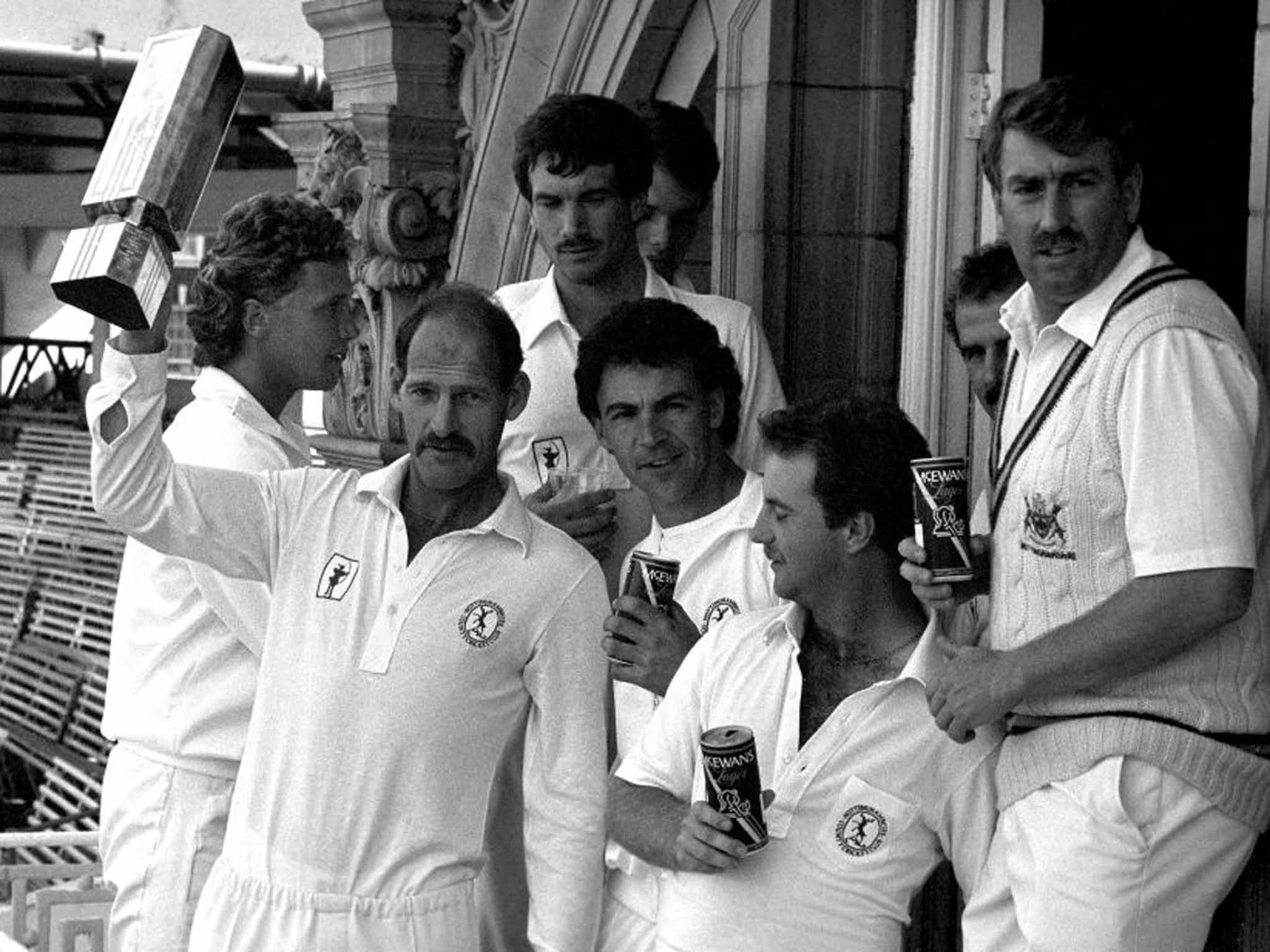Clive Rice: Inspirational cricketer who was denied an international career by apartheid but led Nottinghamshire to glory
He was a knowledgeable investor in stocks and shares and had business interests as diverse as karaoke bars and an ostrich farm

Clive Rice, who has died at 66, four months after undergoing pioneering treatment for a brain tumour, would almost certainly be remembered as one of Test cricket's greatest players had his career reached its peak in a different political climate. An aggressive, right-handed middle order batsman and a deceptively quick right-arm bowler, he was, by a common consensus backed up by statistics, on a par at least with the great Test all-rounders of his era.
Born in Johannesburg in 1949, he made his first class debut for Transvaal in 1969 but by the time he was ready for international cricket, South Africa had been banned from the Test match circuit because of apartheid. When it was were readmitted in 1991, Rice was made captain for a one-day series in India but was dropped for the 1992 World Cup, at 42 deemed to be too old.
But he forged a brilliant domestic career with Transvaal, Natal and Nottinghamshire, at the end of which, in 1994, he had amassed 26,331 first-class runs at an average of 40.95 and taken 930 wickets at 22.49. He played 479 one-day matches, making 13,474 runs at 37.32 and taking 517 wickets at 22.64. In both formats, his figures for batting are better than Imran Khan, Ian Botham, Kapil Dev and Richard Hadlee, recognised as the best all-rounders of their generation, while in bowling he sits behind Hadlee and Imran, but ahead of Botham and Kapil.
As captain, Rice led Nottinghamshire to two County Championships, in 1981 – the county's first since 1929 –and 1987, the latter as part of a double with the NatWest Trophy. The period was notable for his partnership with Hadlee, the New Zealand all-rounder, alongside whom he played for 10 seasons.
Rice had arrived at Trent Bridge in 1975 with the task of replacing the great West Indian, Gar-field Sobers. He was a hard, sometimes abrasive character, and something of an unknown quantity because he had no international record, yet he proved himself up to the task immediately, topping the bowling averages in his first three seasons and making several notable contributions with the bat, including an innings of 246 against Sussex in his second summer that would remain his career-best score.
His partnership with Hadlee happened by accident. Appointed captain in 1978, Rice was sacked following his decision to join Kerry Packer's controversial World Series Cricket, which had been effectively outlawed by the International Cricket Conference. Hadlee was signed as his replacement, but Rice began legal proceedings against Nottinghamshire, who were forced to take him back, agreeing to a compromise where he was reinstated as a player, although not as captain.
Within a season and a half, with Nottinghamshire craving the combative, inspirational qualities they had seen in his leadership, he was reappointed captain. Until then, Nottinghamshire had been a fairly mediocre county, whose fortunes even Sobers had been unable to lift. The dressing room was not short of good players – Tim Robinson, Derek Randall, Bruce French and Eddie Hemmings were among the team he inherited – but it needed a strong character to persuade them to perform consistently. They took the 1981 title by beating Glamorgan at Trent Bridge in the final match of the season, Rice making an unbeaten 104 and Hadlee taking six for 38. Rice was named one of Wisden's Five Cricketers of the Year.
The two enjoyed a friendly but fierce rivalry, socialising together as individuals and with their families, yet always keen to outperform one another on the field. Both left in 1987 after repeating their Championship triumph, winning a Lord's final for the first time and finishing runners-up in the Refuge Assurance Sunday League in the same season.
In South Africa, Rice was part of the Transvaal "Mean Machine", who won the Currie Cup 10 times during his era. He left Transvaal at the same time that he was discarded by South Africa, moving to Natal. He returned to Trent Bridge as cricket manager from 1999-2002. He was less successful, finding that coaching by word came less easily than leading by deed. It was through his presence, however, that Kevin Pietersen agreed to come to Nottinghamshire from South Africa in 2001 and set his sights on playing for England. Rice returned to South Africa, serving as a national selector and establishing a cricket academy.
Away from cricket, Rice played golf – his home backed on to his local course – and raced sports cars. He had an entrepreneurial spirit inherited from his family, whose wealth came from making armour plating for tanks. His choice of dressing-room reading would be the Financial Times rather than The Sun. He was a knowledgeable investor in stocks and shares and had business interests as diverse as karaoke bars and an ostrich farm. His widow, Susan, heads a sports tour and bush safari company.
He began to suffer health problems in 1998, when an investigation into his hearing loss discovered an acoustic neuroma, which had to be removed. In recent years he had developed lung cancer and a second brain tumour, which South African doctors told him was inoperable. In March he flew to India for pioneering laser surgery which appeared to have been successful, and he was recovering well until last weekend, and seemingly died of an infection because of a weakened immune system.
Clive Edward Butler Rice, cricketer and businessman: born Johannesburg 24 July 1949; married Susan (two children); died Cape Town 28 July 2015.
Subscribe to Independent Premium to bookmark this article
Want to bookmark your favourite articles and stories to read or reference later? Start your Independent Premium subscription today.

Join our commenting forum
Join thought-provoking conversations, follow other Independent readers and see their replies